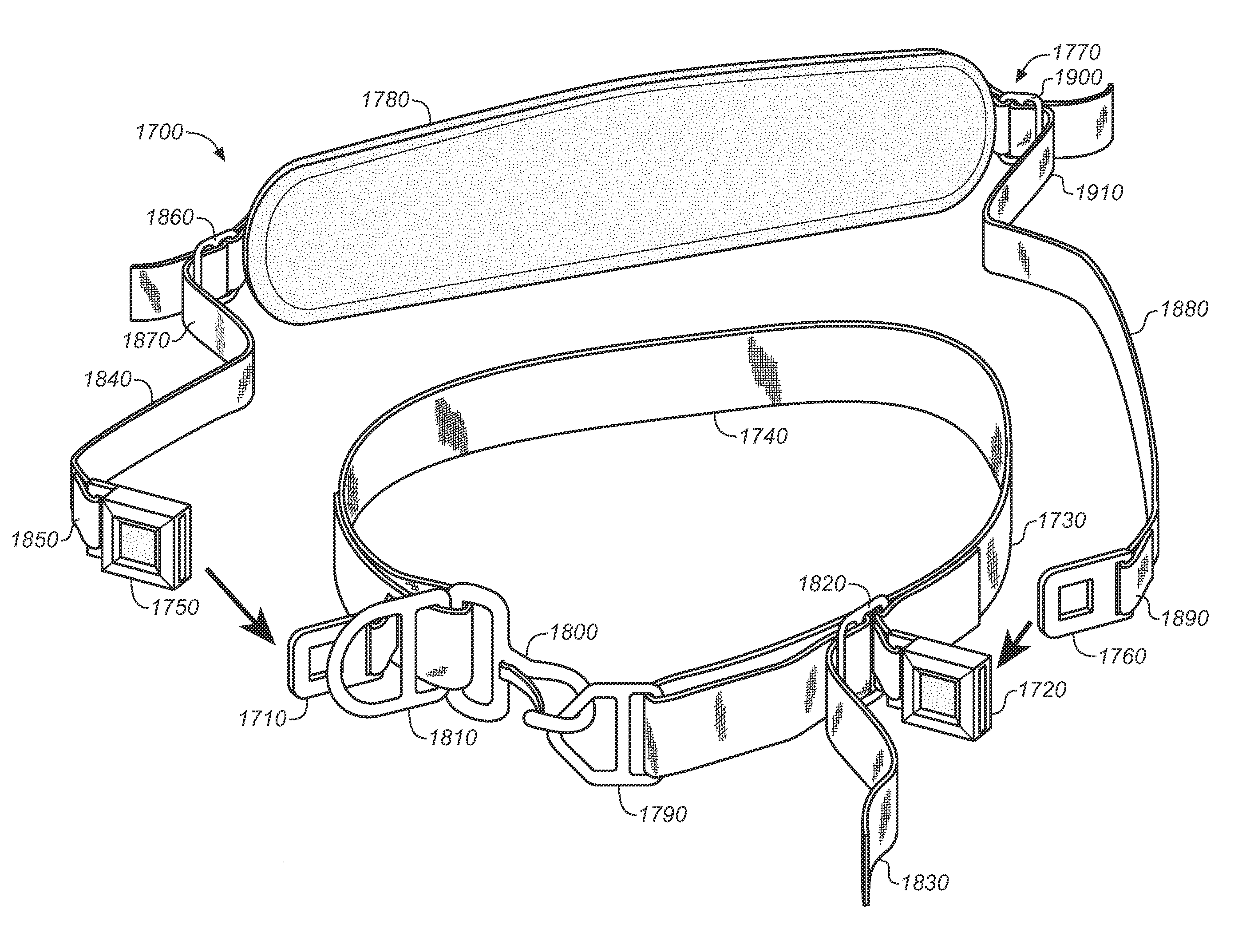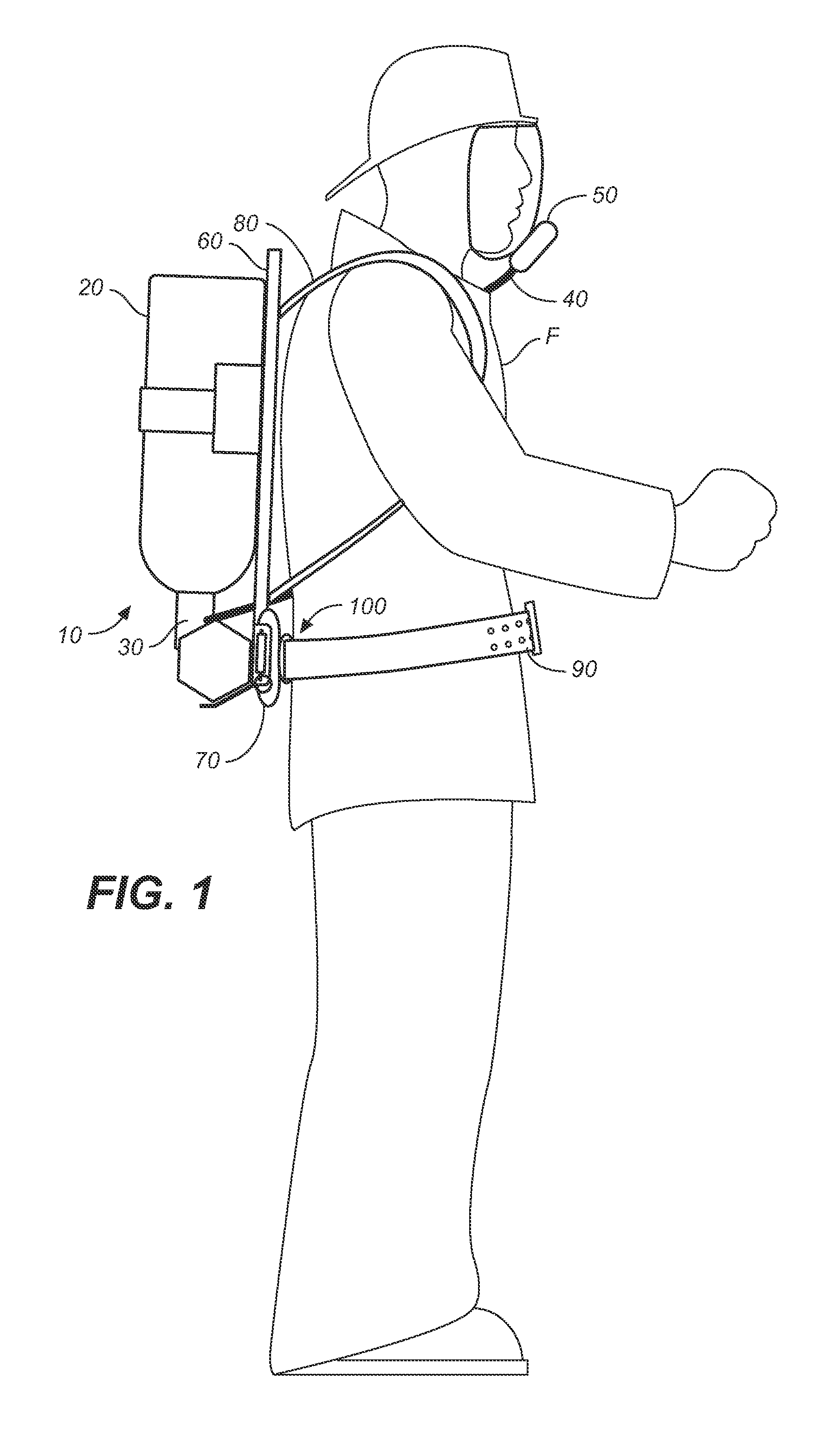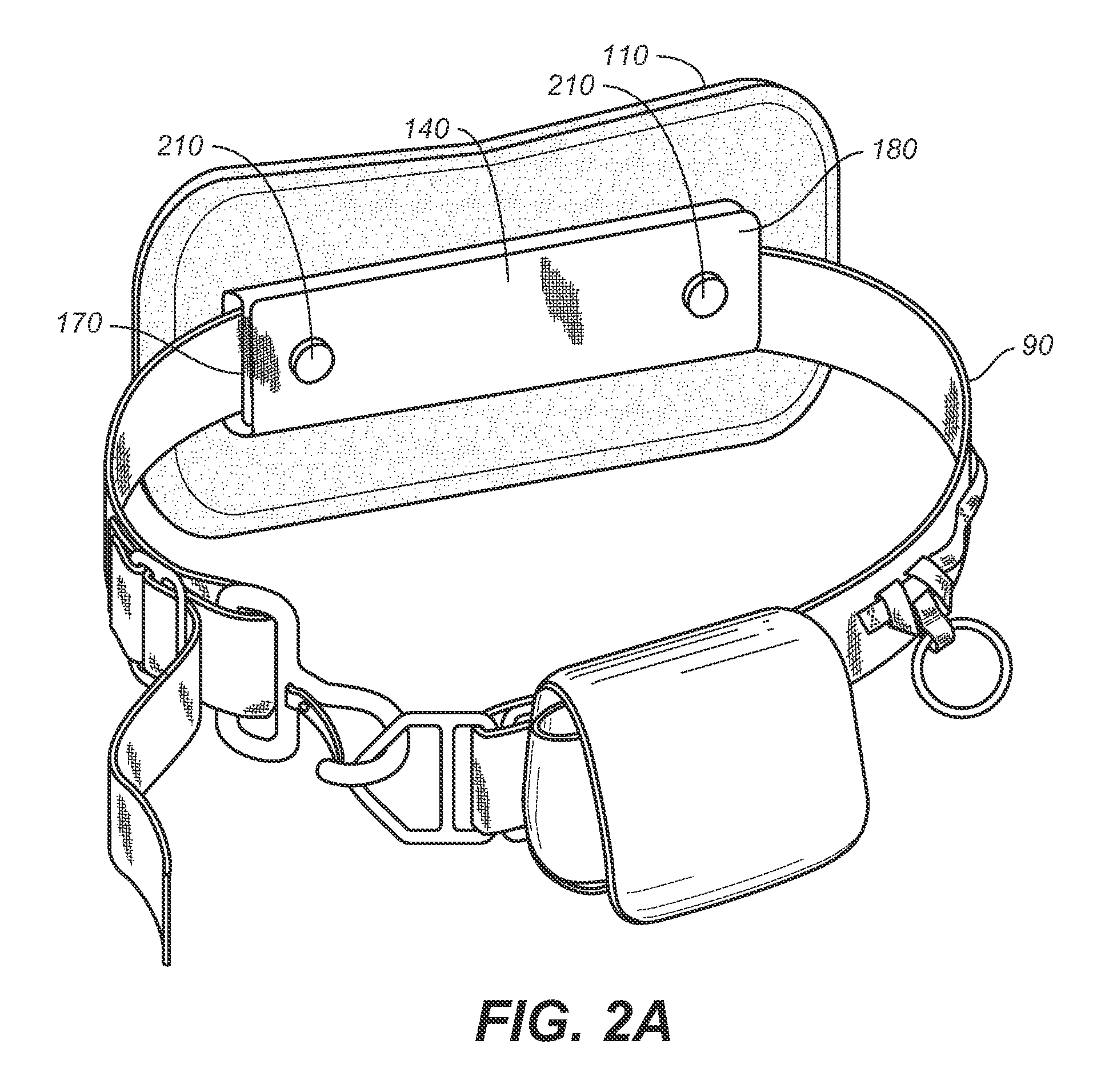Quick release apparatus for an SCBA frame
a quick release and frame technology, applied in the field of quick release harness systems, can solve the problems of unable to achieve perfect balance, instant burns and damage to the lungs of firefighters, and the firefighter bears a heavy burden, and achieves the effects of rapid disconnection or decoupling of the scba, selective connection, and rapid disconnection of the waist belt of a rescue worker
- Summary
- Abstract
- Description
- Claims
- Application Information
AI Technical Summary
Benefits of technology
Problems solved by technology
Method used
Image
Examples
embodiment 800
[0075]Turning next to FIGS. 12-13B and FIGS. 15A-15B, there is shown a third preferred embodiment 800 of the inventive quick release system. This embodiment includes as a first principal element a male belt block 810 having a horizontally disposed belt passageway 820 and an outer surface 830 with an integral rivet-shaped post 840 having a shaft 850 and a head 860. A belt 870 is inserted through the belt passageway such that the male belt block is worn directly behind the wearer in the lumbar region of the back.
[0076]The second principal element is a female frame mounted member 880 which includes mounts 890, 900 for screwing or otherwise connecting the frame mounted member to an SCBA frame. The mounts are attached to the outer surface 910 of a base 920 which includes a central opening 930 in the central portion of the base and a cylindrical receiver cup 940 in which are disposed a helical compression spring 950 with a slidable plate 960 engaging the inner end 970 of the spring. The o...
embodiment 1400
[0081]Referring next to FIGS. 16-16C, there is shown a fifth preferred embodiment 1400 of the inventive quick release system. This embodiment mounts to the lumbar portion 1410 of a SCBA frame, which typically includes a generally planar or flat outer platform 1320 with angled wings 1430, 1440 at each side and which roughly conform to the wearer's back. To adapt the SCBA frame for this embodiment of the quick release system, the lateral ends 1450, 1460 of the angled wings are each provided with one or more male or female snap elements 1470.
[0082]The system next includes a fabric base pad 1480 with fabric loops 1490, 1500 for connecting the base pad to a waist belt 1510. The angled wings of the SCBA frame are slipped under and releasably captured by first and second fabric panels 1520, 1530 that also straddle the waist belt, but with sufficient clearance that the angled wings can slide underneath the fabric panels. Female or male snap elements 1540 are installed on the underside of th...
embodiment 1700
[0085]To address these problems, the seventh preferred embodiment 1700 provides a simple and cost-effective solution. It will be readily appreciated that in this embodiment, the apparatus coupling apparatus comprises right and left tongue-eject buckle assemblies 1710, 1720, respectively, installed on the outside portion 1730 of the right and left strap portions of a rescue worker's (typically a firefighter's) waist belt 1740. The right and left buckle assemblies, 1710 and 1720, connect to the right and left waist buckles 1750, 1760, respectively of an SCBA waist belt 1770. For clarity in the illustrations, the SCBA itself is not shown in the views, but the lumbar portion 1780 of the frame or lumbar support pad is schematically shown to symbolize the SCBA itself and to indicate the structural relationships of the elements.
[0086]The firefighter's waist belt is shown here having a waist buckle comprising a ring 1790 and clip 1800, a D ring 1810, and an adjustment buckle 1820 with an ad...
PUM
| Property | Measurement | Unit |
|---|---|---|
| pressure | aaaaa | aaaaa |
| length | aaaaa | aaaaa |
| time | aaaaa | aaaaa |
Abstract
Description
Claims
Application Information
 Login to View More
Login to View More - R&D
- Intellectual Property
- Life Sciences
- Materials
- Tech Scout
- Unparalleled Data Quality
- Higher Quality Content
- 60% Fewer Hallucinations
Browse by: Latest US Patents, China's latest patents, Technical Efficacy Thesaurus, Application Domain, Technology Topic, Popular Technical Reports.
© 2025 PatSnap. All rights reserved.Legal|Privacy policy|Modern Slavery Act Transparency Statement|Sitemap|About US| Contact US: help@patsnap.com



